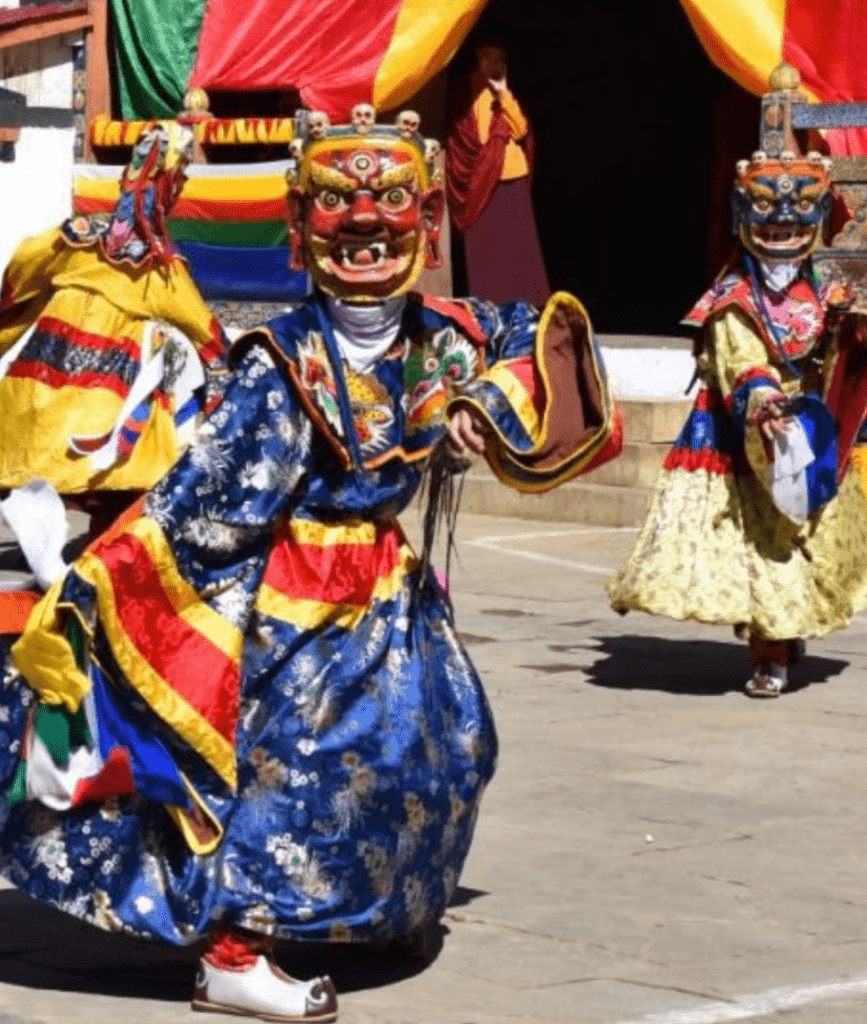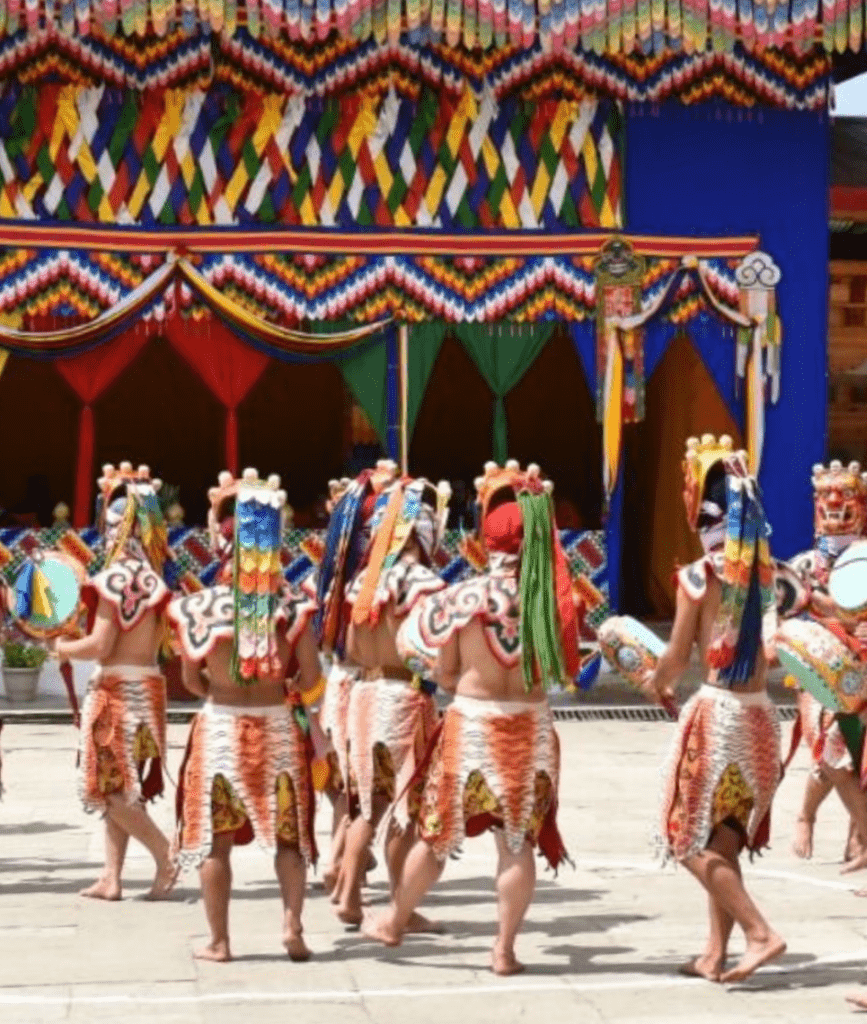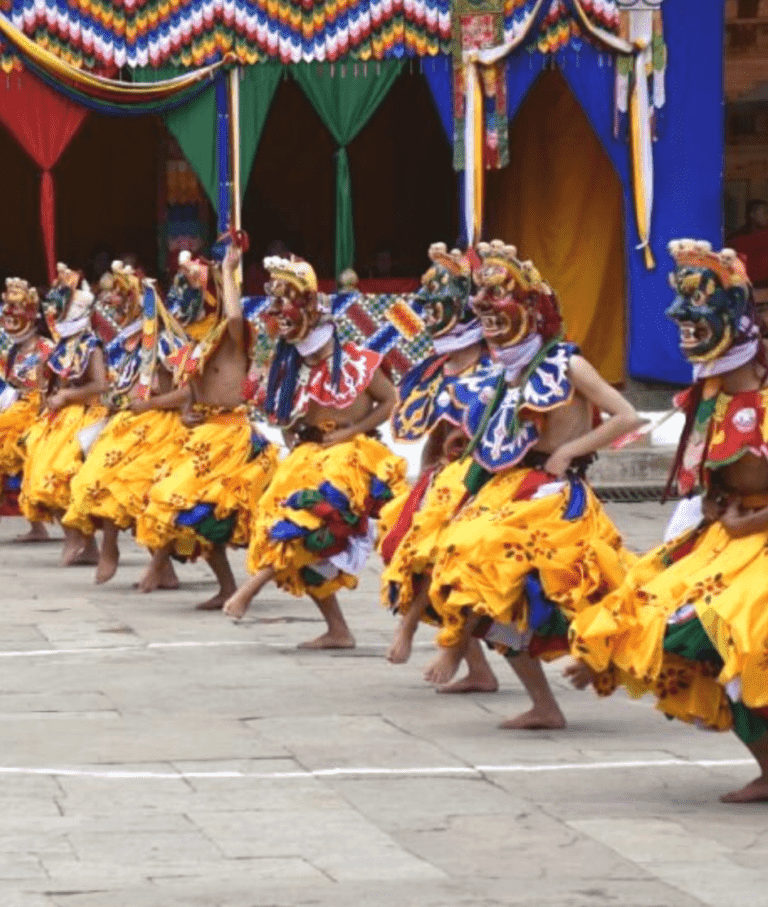There is a certain time every year when Bhutan comes alive in a vivid display of colour, music, dance and motion. This is a time when Bhutanese from all walks of life down tools, put on their finest, most elaborate clothes (exquisite hand woven kiras for women and ghos for men) and gather together for a day of joyful celebration. These festivals, or tshechus as they are known in Bhutan, provide opportunities for people from surrounding villages to come together, to dance, to be happy and to share in spiritual teachings and rituals.
Each year Bhutan’s 20 dzongkhags or districts hold their own annual tshechu, gathering together for a spectacular day of dancing, music, blessings and spiritual teachings, accompanied by the clash of cymbals and meditative beat of drums. They are usually celebrated between 3-5 days and often conclude with the unfurling of a giant thangkha (hand-painted religious scroll) with the Bhutanese lining up alongside to receive special blessings. These festivals are important social and spiritual events in the Bhutanese calendar and are held annually in the courtyards of temples, monasteries and dzongs across the country. They mark the arrival of Buddhism in Bhutan and honor Guru Rinpoche, who was born on the tenth day of the sixth Bhutanese lunar month. In fact, the word tshechu translates as ‘tenth day’.
Monks are integral to tshechus and will spend weeks in advance preparing for the event with prayers and meditation as well as practising ancient, sacred dances known as cham. These are masked dances and are the highlight of any tshechu, telling the story of the teachings of Buddha and the dharma through movement and music. They focus on three themes – dances with moral stories, dances that purify and protect people from destructive spirits and dances that celebrate the triumph of Buddhism and Guru Rimpoche. The Bhutanese believe these dances provide many blessings, luck and prosperity and are a path to enlightenment for anyone lucky enough to witness them.
The dancers are decoratively adorned in brightly coloured costumes and with energetic dancing accompanied by blaring horns, booming drums, and clashing cymbals, whirl and leap around the courtyard of the monastery. While the monks spin and swirl in mesmerising circles, their brocade skirts twirling in flashes of vibrant colour, groups of Atsaras or clowns, entertain the crowds with practical jokes and other antics, often brandishing a large wooden phallus to ward off evil spirits!









